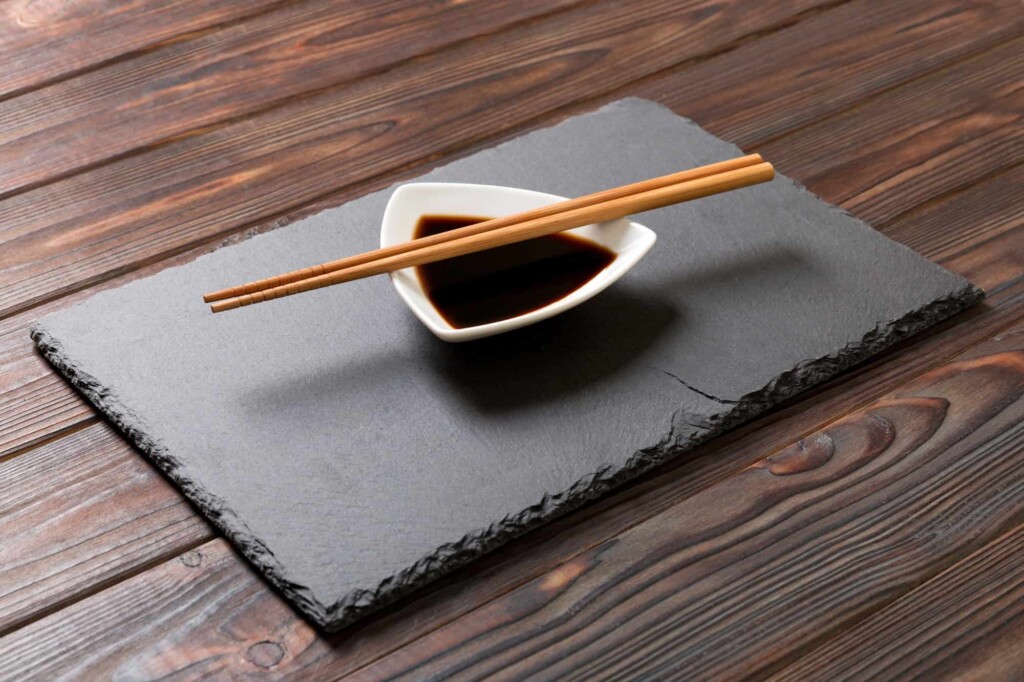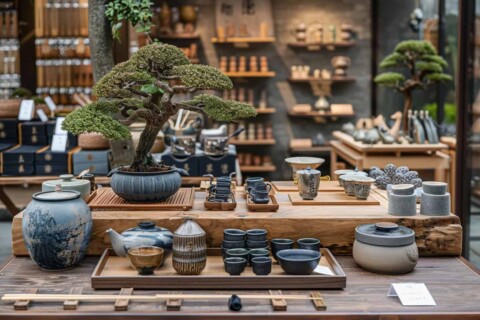Navigating the Art of Respect and Harmony
Japan is a nation where tradition and modernity dance together in perfect synchronization, creating a society built on respect, harmony, and subtle communication. For visitors stepping into this fascinating cultural landscape, understanding Japanese etiquette isn’t just about avoiding embarrassment—it’s about showing genuine respect for a civilization that has refined social interaction into an art form over thousands of years.
The concept of etiquette in Japan goes far deeper than simple politeness. It’s woven into the very fabric of Japanese society, reflecting core values of consideration for others, maintaining group harmony, and preserving face for everyone involved. This intricate social framework, while sometimes overwhelming for newcomers, opens doors to meaningful connections and demonstrates cultural sensitivity that Japanese people deeply appreciate.
The Foundation: Understanding Wa (Harmony)
At the heart of Japanese social interaction lies the concept of “wa” (和)—harmony. This principle influences every aspect of daily life, from business meetings to casual encounters. Wa isn’t just about avoiding conflict; it’s about actively creating an environment where everyone can coexist peacefully and with dignity.
This emphasis on harmony manifests in countless ways throughout Japanese culture. People speak more softly in public spaces, disagreements are handled indirectly to avoid confrontation, and group consensus often takes precedence over individual preferences. Understanding this fundamental principle helps explain why certain behaviors that might seem excessive or overly formal to outsiders are actually expressions of deep cultural values.
The pursuit of harmony also means that Japanese etiquette often prioritizes the comfort and face-saving of others over personal convenience. This isn’t viewed as a burden but as a natural expression of social responsibility. When visitors embrace this mindset, they find themselves not just following rules but participating in a cultural dance that creates smoother, more pleasant interactions for everyone.
Greetings and Bowing: The Language of Respect
The bow is perhaps the most recognizable aspect of Japanese etiquette, serving as both greeting and communication tool. Far from being a simple head nod, bowing in Japan carries layers of meaning that convey respect, gratitude, apology, and social hierarchy all at once.
Different situations call for different types of bows. A casual greeting between friends might warrant a slight 15-degree bow, while meeting someone of higher status or expressing deep gratitude calls for a more profound 30-degree bow. The deepest bows, reserved for formal apologies or showing utmost respect, can reach 45 degrees or more. The duration matters too—rushing through a bow can appear dismissive, while holding it appropriately shows sincerity.
For visitors unfamiliar with bowing nuances, a genuine attempt is always appreciated more than perfect technique. Japanese people understand that foreigners may not master every subtlety, but the effort to show respect in their cultural manner creates instant positive impressions. The key is observing others and matching their level of formality rather than worrying about making mistakes.
Handshakes are becoming more common in international business settings, but they often occur alongside bows rather than replacing them entirely. Many Japanese people now adapt to Western greeting styles when interacting with foreigners, creating a hybrid approach that bridges cultural differences while maintaining respect for tradition.
Gift-Giving: The Art of Omiyage and Seasonal Thoughtfulness
Gift-giving in Japan transcends simple generosity to become an intricate social ritual that strengthens relationships and expresses gratitude. The practice of “omiyage”—bringing back gifts when returning from trips—exemplifies how Japanese culture transforms ordinary acts into opportunities for social connection.
Omiyage isn’t just about the gift itself but about showing consideration for those who weren’t able to travel. Colleagues, friends, and family members expect these small tokens, typically local specialties or famous sweets from the visited region. The act demonstrates that the traveler was thinking of others even while enjoying their own experience, reinforcing social bonds and group harmony.
Seasonal gift-giving follows equally important protocols. During “ochugen” (mid-year gifts) and “oseibo” (year-end gifts), people express gratitude to those who have helped them throughout the year. These gifts, often practical items like food or household goods, aren’t casual gestures but formal expressions of appreciation that maintain important relationships.
The presentation of gifts carries as much weight as the contents. Beautiful wrapping, often done professionally at department stores, shows respect for the recipient. The act of giving involves both hands, accompanied by appropriate phrases expressing humility about the gift’s worthiness. Recipients rarely open gifts immediately in front of the giver, instead expressing gratitude for the thought and saving the unveiling for a more private moment.
Understanding the reciprocal nature of Japanese gift-giving prevents cultural missteps. Receiving a gift creates an obligation to reciprocate at an appropriate level and time, making every exchange part of an ongoing social contract that strengthens community bonds.
Dining Etiquette: Respect for Food and Fellowship
Japanese dining etiquette reflects deep cultural values around gratitude, respect for food, and consideration for fellow diners. These practices transform meals from mere sustenance into opportunities for social harmony and cultural expression.
Chopstick etiquette forms the foundation of proper dining behavior. Never stick chopsticks vertically into rice, as this resembles incense offerings at funerals. Avoid passing food directly from chopstick to chopstick, another practice associated with funeral rituals. Instead, place shared food on others’ plates or use serving chopsticks when available.
The phrases “itadakimasu” (before eating) and “gochisousama” (after eating) bookend meals with gratitude—to the food, those who prepared it, and the creatures that gave their lives for sustenance. These expressions aren’t mere politeness but acknowledgments of the interconnectedness that makes meals possible.
Slurping noodles, while shocking to some Western sensibilities, is not only acceptable but encouraged in Japan. The sound indicates enjoyment and helps cool hot noodles. However, this acceptance doesn’t extend to other foods—slurping soup or eating loudly otherwise remains impolite.
Communal dining often involves sharing dishes placed in the center of the table. Using the opposite end of your chopsticks (the end that hasn’t touched your mouth) to take food from shared plates shows consideration for others’ hygiene concerns. When pouring drinks, always serve others first and allow them to reciprocate rather than pouring your own.
Understanding these dining customs helps visitors participate fully in Japanese food culture, where meals serve as important social bonding experiences rather than just nutritional necessities.
Business Etiquette: Meishi and Meeting Protocol
Japanese business culture operates on principles of hierarchy, consensus-building, and relationship development that require specific etiquette knowledge for successful navigation. The exchange of business cards, or “meishi,” exemplifies how routine business practices become rituals of respect in Japanese culture.
Meishi exchange follows precise protocols that communicate respect for the person’s position and company. Present cards with both hands while standing and bowing slightly. Receive cards with both hands, study them briefly to show respect for the person’s title and company, then place them carefully on the table in front of you during meetings. Never write on someone’s business card or treat it casually—it represents their professional identity and deserves corresponding respect.
Meeting etiquette emphasizes hierarchy and group harmony over individual expression. Seating arrangements reflect status, with the most honored positions furthest from the entrance. Speaking order often follows hierarchy, and direct disagreement is rare. Instead, concerns are expressed indirectly through phrases like “that’s an interesting perspective” or requests for further consideration.
The concept of “nemawashi”—building consensus behind the scenes before formal meetings—means that many decisions are essentially made through private conversations before groups convene. Formal meetings often serve to ratify previously discussed agreements rather than hash out new ideas. Understanding this process helps visitors avoid frustration when meetings seem to lack the decisive debate they might expect.
Building relationships (“ningen kankei”) takes precedence over immediate business results. After-work socializing, often involving shared meals and drinks, provides essential opportunities for relationship building that directly impacts business success. These informal gatherings allow for more open communication than formal office settings permit.
Public Behavior: Consideration in Shared Spaces
Japanese public etiquette centers on minimizing inconvenience to others and maintaining peaceful shared spaces. These guidelines aren’t arbitrary rules but practical applications of cultural values that create more pleasant experiences for everyone.
Public transportation etiquette demonstrates consideration for fellow passengers in crowded conditions. Offering seats to elderly, pregnant, or disabled passengers is expected. Talking on phones is discouraged, with many people switching to silent mode and communicating through text messages instead. Eating and drinking are generally avoided, except for water during hot weather or on longer journeys.
The practice of queuing reflects respect for fairness and order. Whether waiting for trains, entering elevators, or purchasing tickets, orderly lines ensure everyone is served fairly. Cutting lines or pushing ahead is deeply offensive and marks someone as inconsiderate of others’ time and rights.
Volume control in public spaces shows respect for others’ peace and privacy. Loud conversations, boisterous laughter, or playing music without headphones disrupts the calm atmosphere that many Japanese people value in shared spaces. This doesn’t mean being silent but rather being mindful of how personal behavior affects others nearby.
Cleanliness consciousness extends beyond personal hygiene to shared responsibility for public spaces. The relative absence of public trash cans means people often carry their garbage home rather than littering. This collective responsibility creates the clean, orderly public spaces that many visitors admire about Japan.
Religious and Spiritual Etiquette: Respecting Sacred Spaces
Japan’s religious landscape blends Shintoism, Buddhism, and secular practices in ways that influence daily etiquette and special occasion behavior. Understanding proper conduct in religious settings shows respect for beliefs that remain important to many Japanese people, even those who don’t consider themselves particularly religious.
Shrine and temple visits involve specific purification rituals and behavioral expectations. At Shinto shrines, the purification ritual at the entrance involves washing hands and rinsing mouths with water from the provided ladles. Bow before entering the main shrine area, make offerings (typically coins), clap twice, pray silently, then bow again before leaving.
Buddhist temple etiquette differs slightly, with less emphasis on clapping and more on quiet contemplation. Photography restrictions vary by location, so observing posted signs and following locals’ behavior provides the best guidance. Removing hats and sunglasses shows appropriate respect in sacred spaces.
Festivals and religious celebrations offer opportunities to observe Japanese spiritual culture, but they also require sensitivity to their sacred nature. While many festivals welcome visitors, maintaining respectful behavior—following crowd flow, not pushing for better positions, and observing rather than disrupting ceremonies—ensures that celebration remains meaningful for participants.
Contemporary Considerations: Etiquette in Modern Japan
Modern Japan continues evolving its etiquette norms to accommodate technological changes, international influence, and generational shifts while maintaining core cultural values. Understanding these contemporary adaptations helps visitors navigate current social situations more effectively.
Digital etiquette has become increasingly important as smartphones and social media integration grows. Phone photography requires permission, especially in restaurants or when people might be identifiable in images. Social media posting should consider privacy preferences of Japanese friends who may be less comfortable with online visibility than people from other cultures.
International business practices have influenced traditional Japanese business etiquette, creating hybrid approaches that blend global and local customs. However, the underlying values of respect, hierarchy awareness, and relationship building remain constant even as surface practices adapt.
Generational differences exist in etiquette adherence and interpretation, with younger Japanese people sometimes adopting more casual approaches to traditional practices. However, formal situations still call for traditional etiquette regardless of age, and visitors should err on the side of formality when uncertain about appropriate behavior levels.
Environmental consciousness has added new dimensions to traditional cleanliness and consideration values. Bringing reusable shopping bags, properly sorting recyclables, and minimizing waste demonstrate alignment with contemporary Japanese values that extend traditional respect for surroundings to global environmental concerns.
Building Cultural Bridges Through Respectful Engagement
Mastering Japanese etiquette isn’t about perfection but about demonstrating genuine respect for cultural values that prioritize harmony, consideration, and mutual dignity. Japanese people generally appreciate sincere efforts to understand their customs, even when execution isn’t flawless.
The key lies in approaching Japanese culture with curiosity and humility rather than judgment or attempts to impose different cultural standards. Each etiquette practice serves purposes rooted in centuries of social development aimed at creating peaceful, respectful communities.
Observing before acting, asking questions when appropriate, and following locals’ lead provides practical strategies for navigating unfamiliar situations. Most Japanese people are patient with visitors who show genuine interest in understanding and respecting their cultural practices.
Cultural etiquette serves as a bridge between different worldviews, creating opportunities for meaningful cross-cultural connections that enrich everyone involved. When visitors embrace Japanese etiquette principles, they often discover that these practices enhance their own social interactions and provide valuable perspectives on building respectful communities.
Understanding Japanese cultural etiquette opens doors to deeper appreciation of a society that has created remarkable harmony between tradition and innovation, individual expression and group cooperation, formality and warmth. These lessons extend far beyond Japan itself, offering insights into how thoughtful social practices can create more considerate, peaceful communities anywhere in the world.








